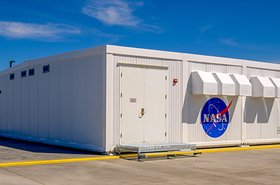The Department of Homeland Security has updated its solicitation for data center and cloud optimization services, with up to $3.35bn set to go to a single provider.
The department wants to move to the cloud in phases, and operate a hybrid computing environment managed by a single contractor, as workloads transfer from its data centers.
Home is where the harddrive is
DHS's Data Center One is operated by General Dynamics, but owned by the government. It is located at the National Center for Critical Information Processing and Storage at the NASA Stennis Space Center in Mississippi, a wider facility that also handles other government workloads.
The second facility is maintained and owned by Perspecta, but the contract is expiring as DHS modernizes.
"Both data center consolidation and modernization of the underlying networks are a top priority for us," Luis Coronado, executive director of IT Operations at DHS said in a briefing to vendors last year, attended by DCD.
"In 2019, we reduced the footprint within this DC1 by approximately 36 percent."
Dr. Mark Lucas, head of DHS' cloud computing operations, added that the department is using "approximately 36,000 square feet of floor space in DC1. Within that footprint, DHS operates 1,660 VMs, 2,000 physical servers, 1,000 network devices, 765TB of storage (56 percent full) housed in 612 racks, with the capacity for an additional 400 racks
The department, which also includes the Immigration and Customs Enforcement (ICE) and US Customs and Border Protection (CBP), expects to phase out its primary DC1 data center first, followed by DC2. The second facility has already seen some of its workloads moved to AWS by Perspecta, notably the DHS's system for identifying people using fingerprints, irises and faces. ICE also is seeking its own $100m contract with AWS and Azure.
The main DHS contract ceiling of $3.35bn is down from the $4bn floated last year. While it will go to a single vendor, that company must use at least two cloud service providers, and have relationships with multiple colocation companies that have government agency clients.




